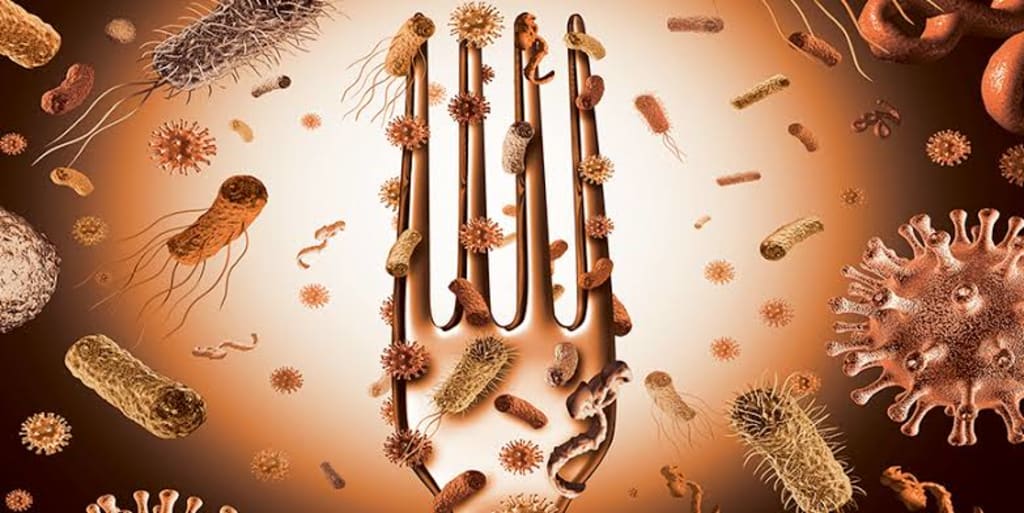**Title:** Fermentation: Pioneering Sustainable Food Solutions
**Subtitle:** Harnessing Microbes to Transform Agriculture and Consumption

Fermentation, an ancient practice deeply ingrained in human civilization, evokes images of pungent kimchi, rising bread dough, and the effervescence of beer. These age-old techniques, driven by microscopic organisms such as bacteria and fungi, transcend mere culinary traditions; they now represent a frontier in food technology poised to address global food challenges.
At its essence, fermentation involves the breakdown of sugars by microorganisms to produce energy—a process humanity has mastered since antiquity. Beyond its historical role in creating staples like yogurt, pickles, and sourdough bread, fermentation today extends into innovative realms. It encompasses lactic acid fermentation for products like yogurt and sourdough, ethanol fermentation for beverages such as wine and beer, and acetic acid fermentation for foods like vinegar and kombucha.
Looking forward, fermentation holds the potential to revolutionize food production by offering sustainable alternatives to traditional animal products. Non-meat substitutes like tempeh, derived from fermented soybeans, exemplify this transformation. Companies like Quorn utilize whole biomass fermentation, where fungi themselves become a protein-rich product, offering a sustainable protein source.
Advancing further, precision fermentation epitomizes the convergence of biology and technology. In this realm, microorganisms are genetically engineered to produce specific proteins and enzymes found in animal products. Perfect Day, for instance, inserts genetic sequences coding for whey protein into fungi, which then ferment and produce milk without the need for animal involvement. This method circumvents the environmental and health concerns associated with conventional animal agriculture, such as hormones and antibiotics.
Beyond milk, precision fermentation shows promise in replicating other animal-derived products like eggs and cheese. Companies like Impossible Foods use yeast to produce heme, a compound responsible for the meaty flavor in their plant-based burgers. This technology not only mimics taste and texture but also mitigates the environmental impacts of traditional livestock farming.
Moreover, fermentation intersects with cell-based agriculture, aiming to cultivate meat from animal cells outside the animal itself. Fermentation plays a crucial role here by producing essential components like collagen and fibrinectin, pivotal for structuring lab-grown meat products to resemble traditional cuts.
These advancements in fermentation offer solutions to some of humanity's most pressing challenges. With a burgeoning global population and escalating demand for protein, fermentation-based technologies present a sustainable pathway forward. They minimize land and water use, reduce pollution, and mitigate greenhouse gas emissions associated with conventional animal agriculture.
Nevertheless, challenges remain, particularly concerning cost. Precision fermentation, for example, faces significant economic barriers. Producing commercial quantities of fermented milk, for instance, remains prohibitively expensive compared to its animal-derived counterpart.
Furthermore, consumer perception poses another hurdle. Convincing individuals that products derived from microbial fermentation are as delectable, safe, and nutritious as their animal-based equivalents necessitates education and widespread acceptance. Overcoming these barriers will require ongoing research to optimize microbial efficiency, enhance production scalability, and drive down costs.
In conclusion, fermentation stands poised at the forefront of a food revolution, offering sustainable alternatives to conventional animal agriculture. By harnessing the power of microorganisms, we can tackle the dual challenges of feeding a growing population and mitigating environmental impacts. As technology progresses and consumer perceptions evolve, fermentation-based food technologies hold immense promise for cultivating a more sustainable future.
About the Creator
Jawad Iftekhar Arko
"Exploring the world through words. Join me on a journey of discovery and inspiration as I share articles on a wide range of topics. Let's connect through the power of storytelling. 🌍📖"
Enjoyed the story? Support the Creator.
Subscribe for free to receive all their stories in your feed. You could also pledge your support or give them a one-off tip, letting them know you appreciate their work.






Comments
There are no comments for this story
Be the first to respond and start the conversation.